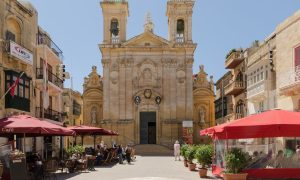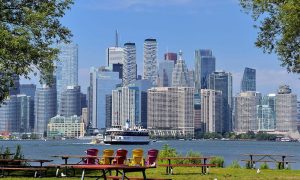in the wake ofimmigrantsThe diversification of demand and globalization has seen Malta attract many immigrant families and investors due to its excellent geographical location, liberal immigration policies and high quality of life. For those planning toImmigration to MaltaFor applicants, understanding the entire process from application to settlement and the related considerations is the key to ensuring a smooth status acquisition. In this article, we will analyze the common core issues in the immigration process and provide you with a one-stop strategy.
I. OnMalta ImmigrationFrequently asked questions about the policy
1. What are the main immigration routes to Malta?
Currently, Malta offers the following two main types of immigration:
- Malta Permanent Residence Program (MPRP): Suitable for applicants seeking long-term residency. The investment threshold is low and the status can be obtained within 4-6 months.
- Malta Passport Scheme (MCES): Suitable for High Net Worth Individuals (HNWIs) to acquire Maltese Citizenship (EU Passport) through investment, usually within 1 year.
2. application (form etc)Malta ImmigrationWhat basic conditions need to be met?
All applicants are required to meet the following criteria:
- Be at least 18 years of age;
- No criminal record and due diligence by the Government of Malta;
- Provide proof of the source of funds to ensure the legitimacy of assets;
- Purchase or rent a property that meets the requirements and complete the relevant donations.
II. Frequently asked questions about the immigration application process
1. What is the application process?
Regardless of the immigration route chosen, the process is largely the same:
- assess one's qualifications: Determine if you meet the basic application requirements;
- Preparation of application materials: Includes passport, certificate of no criminality, proof of assets, etc;
- Submit an application: Submission of documents through an authorized immigration agency;
- due diligence: The government vets background information to ensure that funding sources are legitimate;
- Investments completed: Purchase of property or donations upon request;
- Acquisition of identity: The Permanent Residence Program issues a residence card, and the Passport Program grants a passport directly.
2. What are the specific requirements for due diligence?
The Maltese government's due diligence is very strict and focuses on the following:
- Whether the applicant's source of funds is clear and legal;
- The existence of a criminal record or adverse credit history;
- Are involved in high-risk industries or politically sensitive identities.
Passing due diligence is the key to a successful application, and it is recommended that detailed documentation of assets and income be prepared in advance.
III. Frequently asked questions on costs and investments
1. Malta Investment ImmigrationWhat are the cost components of the
Costs vary depending on the immigration program, and the following is an overview of costs for the two main programs:
- Permanent Residence Program (MPRP)::
- Contributed approximately 30,000 euros to the Government;
- Minimum of 300,000 euros to purchase a home or approximately 10,000 euros per year to rent a home;
- Charitable contribution of 2,000 euros.
- Passport Program (MCES)::
- Contribution to the government of 600,000 euros (3-year naturalization) or 750,000 euros (1-year naturalization);
- Minimum property investment of 700,000 euros or annual rental of 16,000 euros for leasing;
- Charitable donations of 10,000 euros.
2. How do I choose between buying and renting?
Buying a home is suitable for applicants who are looking to settle down for the long term and seek to increase their assets, while renting a home is more flexible and suitable for an initial transitional stay. It is important to note that the home purchase or rental contract must meet the minimum amount of money required by the government and be maintained for a certain period of time (usually 5 years).
IV. Frequently asked questions about settlement life
1. Can I work freely in Malta after immigration?
- hold (passport, views etc)Permanent Residence CardApplicants may reside in Malta, but are required to apply for an additional work visa in order to work;
- hold (passport, views etc)Maltese passportThe applicant, as an EU citizen, can work and live in any country in the EU without additional authorization.
2. Is the cost of living in Malta high?
The cost of living in Malta is in the middle of Europe and the following are the main cost references:

- shelter: The rent is about 800-2000 Euro/month (depending on the area);
- daily expense: The average monthly expenditure of a family is about 1,500 euros;
- teach: International school tuition fees are around 5,000-10,000 euros per year;
- medical care: Benefits of the public healthcare system are available with residency status; private healthcare is available at an additional cost.
3. What is the quality of education and healthcare in Malta?
- Education: Malta is a member of the Commonwealth of Nations and the quality of education is in line with that of the UK, with high standards in both international and public schools.
- Healthcare: Malta's healthcare system is one of the best in the world, with public healthcare services being free or inexpensive and private healthcare services focusing on a high-end experience.
V. Frequently asked questions on identity management
1. Is there a validity period for Maltese Permanent Residency status?
Malta's Permanent Residence status has no expiry date and is granted for life and can be passed on from one generation to the next without the need for renewal.

2. Maltese Passport ImmigrationWhat are the advantages?
The Maltese passport is an EU passport and its holders enjoy the following benefits:
- Visa-free in more than 180 countries, including the United States, the United Kingdom, and Canada;
- Freedom to live, work and study in EU countries;
- Enjoyment of the rights and benefits of EU citizens.
3. Do I need to live in Malta permanently after my status is approved?
- Permanent Residence Scheme: No mandatory residency requirement, but it is advisable to maintain ties with Malta (e.g. purchase of property or regular visits).
- Passport Program: Subject to basic requirements for length of residence prior to naturalization (1 or 3 years).
VI. Recommendations for successful migration
- Advance planning applications: Ensure that all materials are well prepared and that the investment plan is implemented in accordance with government requirements;
- Choose a professional organization: An authorized immigration agency can save you time and effort while ensuring compliance with the application process;
- Focus on tax issues: Understand Malta's tax policies and plan ahead according to your assets.
concluding remarks
Malta has become the destination of choice for many families and individuals migrating to Europe due to its stable policies, livable environment and extensive EU accessibility. From application to settlement, a clear understanding of policy details, cost components and life planning will help you accomplish your immigration goals more efficiently. We hope this article has provided you withMalta ImmigrationThe journey provides clear ideas!






